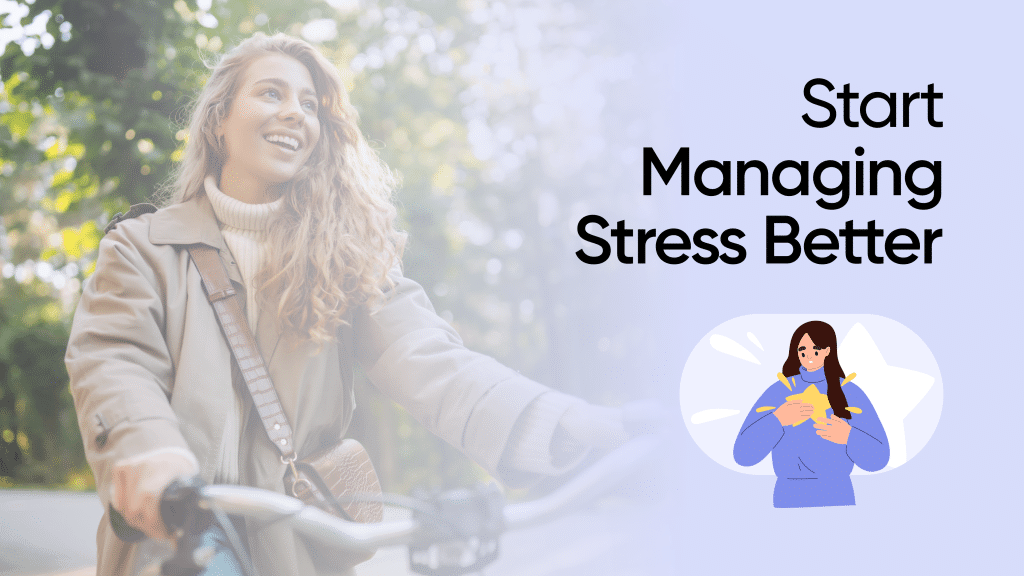Reflect on your relationships with other people: your parents, siblings, friends, relatives, and acquaintances. Do you feel that you are connected to them? Are your relationships thriving, or do you feel isolated, alone, and unsure of how to get close to people in general? From a mental health perspective, relationships matter a great deal. They also speak about our attachment history with our primary caregivers, which echoes strongly in our friendships and romantic relationships.
For example, you may have just started dating someone and it hasn’t gone well. Perhaps you haven’t dated for years because something has been keeping you from building healthy and sustainable relationships with others. If you take a closer look at your relationships, you may see that the quality of your relationships in the present is closely linked to a series of adverse experiences from your childhood. There is an abundance of literature in the mental health field showing that distress in early childhood, particularly in the area of relationships, leads to difficulty creating close and fulfilling relationships as an adult (15).
Therefore, looking at your adult relationship may give you some insight into early attachment trauma. This article aims to provide some guidance on how to discern whether you have unprocessed trauma that affects your current quality of life.
How do I know if I have childhood trauma?
Reading about this may trigger some uncomfortable emotions, so please be gentle with yourself. Regardless of the nature of your trauma, this is generally obvious in your current life. It is often reflected in your habits, interpersonal relationships, and your general mental well-being
Some other ways in which childhood trauma shows up in adulthood are:
- Unfulfilling, imbalanced, and difficult adult relationships
- Poor emotional regulation and high emotional reactivity to stress
- Physical well-being issues
- Mental health issues(9)
If you have PTSD or any other mental health condition, please consult a mental health specialist instead.
Impact on adult relationships
Think for a moment about your romantic relationships. Reflect on your behaviors in relation to other people and your interactions with them. While you may think these are random, they reflect your traumatic history and the way you were impacted by early attachments. There is some evidence that supports this statement too. For example, one study asked 911 students (492 female and 419 male) about their traumatic experiences as children (11).
The students who experienced physical, emotional, or sexual abuse exhibited more fearful, dismissive, and preoccupied attachment styles. At the same time, students who didn’t experience childhood trauma were found to choose more secure attachment styles into adulthood (11).
As we mentioned attachment styles, let’s briefly look at them (1):
- Secure. Everyone strives to reach this attachment style. Individuals with a secure attachment style build sustainable, healthy relationships. They have good self-esteem and can voice their needs, set boundaries, and build emotional intimacy.
- Disorganized. Adults who choose this attachment style are reluctant to get too close to people and always fear that their partners will leave them. On one hand, they desire connection, but on the other, they fear it. An example of this may look like getting anxious when not hearing back from someone after a date and convincing yourself that you can find someone better anyway.
- Avoidant. This has some similarities with ambivalence, but avoidant people have problems becoming intimate with someone. For example, they avoid eye contact and physical touch and rarely ask for help (13).
- Anxious. This particular attachment style manifests in an intense fear of losing connection with someone, which results in a need for constant reassurance from the person. It is also characterized by a strong fear of abandonment and rejection, low self-esteem, and deep feelings of unworthiness.
Emotional regulation and responses
Besides the tendency towards avoidant, anxious, and disorganized attachment styles, a history of trauma is also reflected in problems with emotional regulation. These can manifest in the following ways:
- Uncontrollable anger
- Worry
- An inability to express your emotions
- Withdrawal
- Trust issues
According to the Cleveland Clinic podcast, adults who survived trauma as children are more susceptible to mental health issues. They also have a higher chance of abusing alcohol (4).
If you have PTSD or any other mental health condition, please consult a mental health specialist instead.
Physical well-being
Trauma does not only impact your emotional and mental well-being, and it may also influence your physical well-being. Studies have shown that children who experience trauma are more prone to health problems and chronic illnesses such as diabetes and heart disease in adulthood. (4).
If you are experiencing physical health issues, consult with a healthcare professional or physician instead.
However, more points than these may be required. You want a clear answer based on your personal experience. You want a real score and the best solution afterward. You could take a childhood trauma test for adults.
The effective ACE score will tell you about one type of risk factor among many. It plays the role of guidance and how your adverse childhood experience is linked to a variety of negative conditions that range from increased headaches to heart disease (10).
What classifies as childhood trauma?
So far, we have covered some of the symptoms that may indicate a previous history of trauma in your own life. However, you may be wondering what type of events lead to the development of these symptoms. While there is no precise list of traumatic life events, it is important to keep in mind what can make such an event traumatic. According to the American Psychological Association (APA) (16), an event that feels life-threatening, dangerous, and leaves someone unable to cope can be classified as traumatic. However, it is important to remember that this is incredibly subjective and is mostly dependent on the person’s ability to cope with what is going on. When this event happens, a child may become overwhelmed, upset, and/or feel helpless (14).
A traumatic event is a scary, dangerous occurrence where a person either faces or witnesses an immediate threat to themselves or their loved ones (14).
In some cases, a traumatic event can lead to injuries or harm. When this happens, the person becomes overwhelmed with negative emotions, such as fear, anxiety, distress, or loss.
Potential traumatic events include:
- Psychological, physical, or sexual abuse
- Physical or sexual assault
- Community or school violence
- Witnessing or experiencing domestic violence
- Neglect
- Military family-related stressors (e.g. deployment, parental loss, or injury)
- National disasters or terrorism
- Commercial sexual exploitation
- Sudden or violent loss of a loved one
- Serious accidents or life-threatening illness
- Refugee or war experiences (12)
It’s important to note that the reactions of adults to a child who experiences any form of abuse are crucial in the subsequent development of trauma symptoms. For example, an 8-year-old girl who is harassed by an older person who is then met with disbelief by her caregivers would develop further wounds in addition to those caused by the harassment, the lack of support and resources leading to further traumatization.
She would have a difficult time validating her own internal struggles and develop the belief that the world is not a safe place for her and no one truly sees her.
With this in mind, parents must ensure their children are safe and seek help from a trained professional who can help children and families cope and move to recovery.
Read more: Healing Childhood Trauma Methods That Really Work
How long can childhood trauma last?
Unfortunately, until it is fully addressed, treated, and acknowledged, trauma remains present in the psyche and body. However, there are important factors that determine the intensity and duration of the trauma response, including:
- How traumatic the event was
- The speed of acknowledgment of the problem
- The appearance of professional help
- Existing resources at the time of traumatization
- The person’s mental and emotional resilience
- Personality
- Social, cultural, and economic factors
- Mental health history (including that of the family)
- Previous traumatization
Signs of unresolved childhood trauma in adults often “haunt” them for years, as they were neglected in the past. However, it’s difficult to state the exact length of childhood trauma for everyone as we are all different and deal with issues in different ways.
The problem begins when parents refuse to acknowledge the issue, choosing to rely on “time”, which in their opinion will heal everything. Luckily, not all parents are like this. On the contrary, many of them encourage their child to talk about their feelings and validate their emotions.
You should understand that avoiding the problem and trying to figure it out on your own only feeds the effects of childhood traumas. Some adults end up dealing with their trauma all their lives, while others admit to having it, seek help, and gradually get back on track.
You shouldn’t be embarrassed by your traumatic childhood and how it has affected you. As you’re an adult now, you’re the one who is in control of your life. You have the right to solve the issue with a professional and you have the right to vent, which will release all your restricted emotions and feelings. Most importantly, you have the right to promote your life by focusing on yourself first, no matter how selfish this may seem to others.
How do you “fix” childhood trauma?
“Fix it, you’re an adult. It’s easy. Just understand your problem and solve it with the therapist.”
People who haven’t experienced childhood trauma will probably not understand those who have. However, we can all acknowledge that it’s an exasperating process that requires acknowledgment, patience, and support.
The process of managing childhood trauma may consist of the following steps (2):
- Admitting the problem. You must understand your trauma. It can generate some momentous emotions and unless you learn how to process these emotions, you will continue repeating the same detrimental patterns that keep you stuck and hurting.
- Spending time with supportive people. This means those who encourage you to understand your problem; those who evoke positive emotions and inspire you to bigger changes.
- Leading a healthy lifestyle. You already know that eating well, sleeping enough, and staying physically active make you feel better about yourself and foster good habits. Focus on mindfulness, which works well for both adults and children.
- Working out. Mental Health And Sports are two good friends that go hand in hand supporting each other. Sport is beneficial for your mental health too. While performing any physical activity makes us tired, the positive effects it has on mental health make it totally worthwhile:
5. Avoiding alcohol and drugs. Alcohol and drugs are undoubtedly damaging and lead to long-term negative effects on both physical and mental health (3).
6. Set realistic goals and focus on what you can manage. When you set goals, you have a clearer idea of the healing steps you need to take. This will speed up the transformation process.
In addition to these steps, a mental health professional can also help you start to heal. They use evidence-based trauma treatment to help children and families cope with the impact of traumatic events and move toward recovery.
These treatments involve trauma-focused cognitive behavioral therapies (8).
Read more: How To Deal With Childhood Trauma as an Adult
FAQs
Do I have false memories?
People who have a history of trauma or stress are likely to produce false memories. This happens because negative events produce more false memories than positive or neutral ones. Everyone has false memories, including you. However, the most effective way of understanding whether these memories are false is to contact a therapist. A mental health professional will provide you with efficient treatment to reduce the effects of false memories.
What are the 10 ACEs of trauma?
The 10 Adverse Childhood Experiences are child physical abuse, child emotional abuse, child sexual abuse, physical neglect, emotional neglect, the presence of a mentally ill, depressed, or suicidal person at home, a drug-addicted or alcoholic family member, witnessing domestic violence against the mother, loss of a parent to death or abandonment by parental divorce, and incarceration of any family member for a crime.
What is a trauma test?
The trauma test is a special rating scale that helps determine the degree to which you struggle with the effects of trauma and your difficulty with healing and recovery.
What does childhood trauma look like in adults?
Signs of childhood trauma in adults often appear through their inability to connect with others and sustain normal relationships with people; problems with emotional regulation; physical health deprivation.
The Bottom Line
Do I have childhood trauma? I hope you found at least one helpful answer to this question in this article.
Let’s conclude all the essentials. Childhood trauma is a scary and dangerous event that happens to a child aged 0 to 18 years.
The symptoms of childhood trauma may impact your relationships with people and your emotional/physical health. The length of child trauma is dependent on how traumatic the event was, how fast you understand the problem, and how quickly you contact a mental health specialist.
You may start to recover from childhood trauma by admitting the problem, getting trauma-informed mental health support, spending time with caring people, leading a healthy lifestyle, avoiding drugs and alcohol, and setting realistic goals.
DISCLAIMER:
This article is intended for general informational purposes only and does not address individual circumstances. It is not a substitute for professional advice or help and should not be relied on to make decisions of any kind. Any action you take upon the information presented in this article is strictly at your own risk and responsibility!
SOURCES:
- Attachment Styles in Maltreated Children: A Comparative Study (2000, springer.com)
- Coping With Traumatic Events (2023, nimh.nih.gov)
- Drugs, alcohol & mental health (rethink.org)
- Effect of Adverse Childhood Experiences (2021, clevelandclinic.org)
- How Common is PTSD in Children and Teens? (ptsd.va.gov)
- Mental health (sportengland.org)
- Post-traumatic stress disorder (PTSD) (2022, mayoclinic.org)
- Recognizing and Treating Child Traumatic Stress (2022, samhsa.gov)
- Signs You May Be Dealing With Lingering Effects of Childhood Trauma (psychiatryfortworth.com)
- Take The ACE Quiz — And Learn What It Does And Doesn’t Mean (2015, npr.org)
- The Link between Types of Attachment and Childhood Trauma (2016, ed.gov)
- Understanding Child Trauma (2023, samhsa.gov)
- What Is Avoidant Attachment? (2023, webmd.com)
- What is Child Trauma (2023, northwestern.edu)
- Childhood trauma and adult interpersonal relationships problems (2014, PubMed Central)















